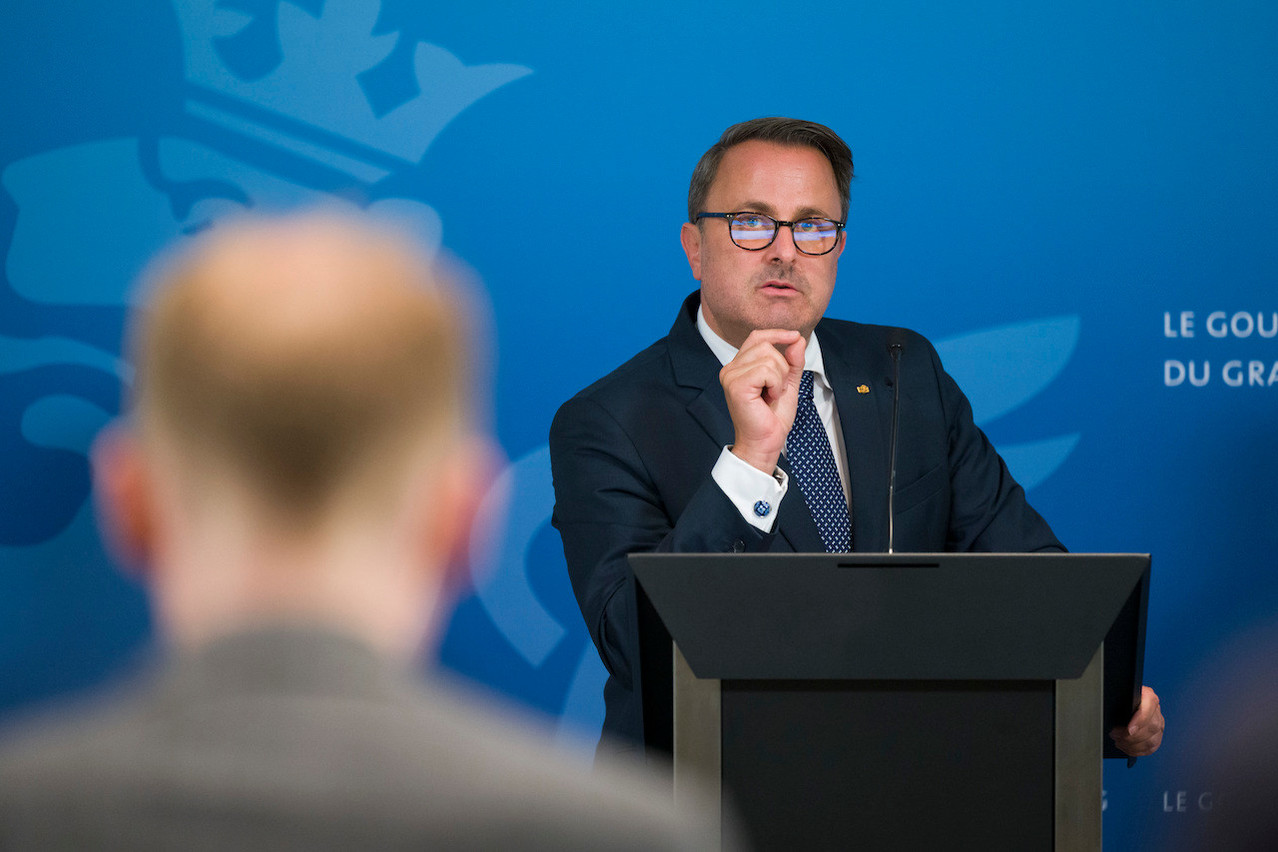Bettel (DP) was under no illusions that the upcoming tripartite talks, scheduled to last at least three days starting on Sunday 18 September, were going to be easy. The aim of the meeting of government, employer and trade union representatives--the so-called Luxembourg model of social conciliation--is to hammer out a deal that will help households and businesses weather the perfect storm of inflation and rising energy costs over the winter.
“We are living in a different world from half a year ago, at the last tripartite,” Bettel said as he addressed the media on Wednesday evening after bilateral preparatory meetings.

Union leaders Patrick Dury (LCGB), Nora Back (OGBL) and Romain Wolff (CGFP) arrive for bilateral meetings with government representatives on Wednesday. SIP / Emmanuel Claude
The prime minster said that he was hoping for open, constructive talks in which all sides would show solidarity. But he stressed that an agreement must be found by the end of September or at the very latest the beginning of October. “Winter is knocking at the door,” he said, adding that “staying warm at home cannot be a luxury that only a few can afford.”
Three scenarios
The urgency is evident when looking at three different scenarios that national statistics office Statec has prepared:
The pessimistic scenario would see inflation rise to 6.8% in 2022 and 8.5% in 2023. That means that under the indexation rules, automatic salary increases would kick in in November, January, April and again in the third quarter of 2023. Not to mention the 2022 index that was carried over to next spring as part of the agreement reached at the last tripartite. Five indexes in the space of less than a year would be a catastrophe for most businesses.
Statec’s middle ground scenario would nevertheless require three indexed salary increases--in November 2022, March and September 2023--in addition to the one carried over from 2022 as inflation reaches 6.6% in 2022 and stays at the same level in 2023.
The most optimistic scenario--inflation of 6.4% in 2022 falling to 4.4% in 2023--would still mean three automatic salary increases, in January and July 2023 as well as one the spring 2023 index postponed from this summer.
Exceptional circumstances call for exceptional measures
Bettel said than automatically postponing any looming indexed salary rises was no longer part of the solution. He wants to find “suitable solutions” with the employers and unions. But he stressed that in the current situation of quick shifting geopolitical circumstances, he could not rule out further tripartite meetings further down the line if the economic situation worsens again.
Read also
The state is prepared to make appropriate financial aid available to households and businesses, Bettel said. But when asked how much leeway the state coffers had, he explained that cabinet would be hearing from finance minister Yuriko Backes (DP) on Thursday before making any decision. “The sky is not the limit,” Bettel said. The government would not risk the financial stability of the country at risk, but “exceptional circumstances call for exceptional measures,” he said.
Backes had already hinted that the package could exceed 1% of the grand duchy’s GDP, but that although the aim would be to give businesses some sort of stability and to help the most vulnerable, Luxembourg’s “triple A rating and our economic stability are an integral part of our success.”
